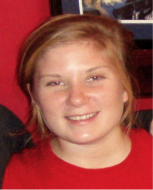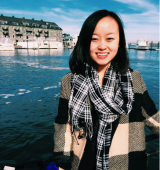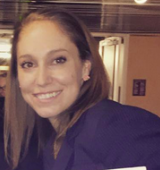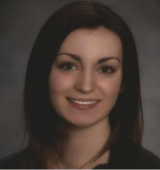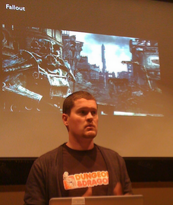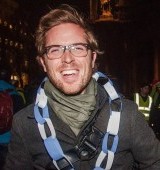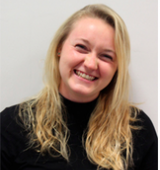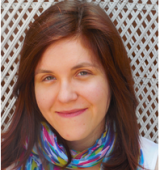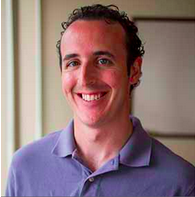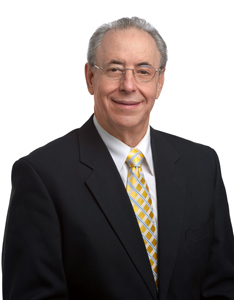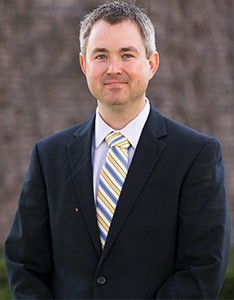Speakers-2015
Panel 1: Visual Communication
Kate Mays
|
Kate is a M.A. Candidate of Emerging Media Studies at Boston University. Her interests include media convergence, and the effects of Presenting Paper: The Facebooked self from high school to college: Do online representations of the self shift when the offline context changes? |
Lei Chen |
Lei is a M.A. Candidate of Emerging Media Studies at Boston University. Her research interests are based on how new media content shapes user’s perception on social concepts. Her current project studies how Instagram posts influence user’s understanding Presenting Paper: Clean Eating on Instagram |
Kate Hoyt |
Kate is a Graduate Teaching Instructor in the Communication Studies department with a specialization in virtual and digital communication at the University of Denver. She holds a Master of Fine Arts in Emergent Digital Practices from the University of Denver and is working toward her PhD. She is interested in Presenting Paper |
Panel 2: Platforms & Participation
| Brittany is a M.A. Candidate of Emerging Media Studies at Boston University. Her research interests include media psychology, cultural studies, user experience, and visual rhetoric. Her current project explores the perceptions of wearable technology in the medical field and the diffusion of medical technology. Presenting Paper: Google Glass and the Diffusion of Wearable Medical Technology |
Brittany Andersen
|
| Zach is a PhD candidate (ABD) in the Department of Communication at the University of Massachusetts. He received his B.S. Mike is a Lecturer in Communication & Media Studies at the University of New Hampshire. He received his B.A. from the University of New Hampshire and his M.A. from the University of Massachusetts-Amherst, both in Communication. Mike’s research interests generally focus on digital media and politics, and lately has focused on how digital platforms and spaces can function as a public good or commons. He also has a background in media policy advocacy and research, having been a Media Policy Fellow at Free Press. He lives locally, in the Jamaica Plain neighborhood of Boston. Presenting Paper:Monetizing a Meme: YouTube, and the Harlem Shake |
Zach McDowell
Michael Soha
|
| Lauren is a M.A. Candidate of Emerging Media Studies at Boston University. Her research interest is focused on civil and social changes as they unfold on social media platforms. Her current project explores active and passive Tweets within two major social movements- privacy rights and climate change- and how these message can have an impact on offline activism efforts. Presenting Paper: Activism Movements on Twitter: Active and Passive Users |
Lauren Sale |
Panel 3: Civil Society Online
Panel 4: Gatekeepers and Borders
| Muira is a Beinecke Scholar, former Turkey Fulbrighter, alumna of Carleton College, and current M.A. candidate in Translation Studies at UMass-Amherst. She probes the corners and crevices of cyberspace to better understand the political, legal, ethical, spatial, and ideological challenges involved in translating Tweets. Her research interests lie at the intersection of law, politics, and translation, primarily focusing on prison libraries and the complexities of multilingual cyberspace. This summer, she’s also working as a research assistant at the Harvard Berkman Center for Internet and Society. Presenting Paper: Translating Tweets: A Challenging Feat for Activists |
Muira McCammon |
| Andrew is a PhD student in Political Science at the Massachusetts Institute of Technology. His research interests surround the role of the Internet, particularly social media, in conflict and politics. Prior to MIT, he worked at the Council on Foreign Relations’ Center for Preventive Action as a research associate and assistant director. He has field experience in Iraq, Afghanistan, and Sierra Leone, among other conflict-affected states. Presenting Paper: #DictatorErdogan: How Online Censorship Can Backfire |
Andrew Miller |
| Bio coming soon.. Presenting Paper: #Revolution and Reaction: Digital Culture and Rabbinic Authority |
Hayyim Rothman |
Guest Speakers
Introduction
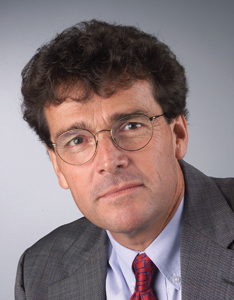 Thomas Fiedler, Dean, College of Communication, Boston University
Thomas Fiedler, Dean, College of Communication, Boston University
James E. Katz, Feld Professor of Emerging Media; Director, Division of Emerging Media Studies, Boston University
Opening Remark
Jacob Groshek, Assistant Professor in the Division of Emerging Media Studies at College of Communication, Boston University
Keynote
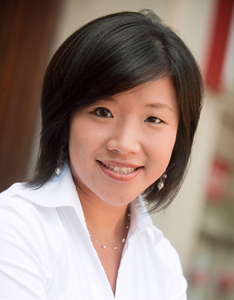 Mina Tsay-Vogel, Assistant Professor in the Division of Communication at College of Communication, Boston University
Mina Tsay-Vogel, Assistant Professor in the Division of Communication at College of Communication, Boston University
The psychological and interpersonal impact of emerging media: Bridging academia and practice
Dr. Tsay-Vogel will be discussing the impact of emerging media with particular focus on long-term psychological and interpersonal effects. She will address how and where academic research and industry practices intersect to produce the most effective synergy in emerging media studies. Further, avenues for future research in emerging media studies and their implications for human communication will be presented.
